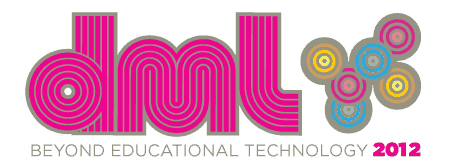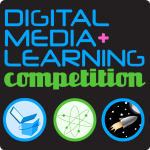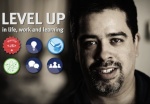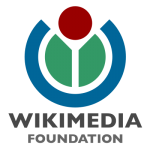Information for DML2012 Exhibitors & Mozilla Science Fair
An exhibit hall will be featured alongside the Mozilla Foundation Science Fair on Thursday, March 1, 6:00-7:30 pm.
The application process for exhibits/demos is now closed, but check out the amazing organizations that will be participating!
Science Fair Exhibitors
Common Sense Media |
|||
| Presented by: Linda Burch | |||
| Common Sense Media is dedicated to improving the lives of kids and families by providing the trustworthy information, education, and independent voice they need to thrive in a world of media and technology. We exist because our nation's children spend more time with media and digital activities than they do with their families or in school, which profoundly impacts their social, emotional, and physical development . | |||
 |
Hive |
||
| Presented by: Chris Lawrence, Lainie DeCoursy, Christina Timmins, and Christian Greer | |||
| Hive Learning Networks are open, connected communities dedicated to transforming the learning landscape, creating opportunities for youth to explore their interests in virtual and physical spaces in New York and Chicago. #hivebuzz | |||
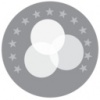 |
Mozilla Popcorn |
||
| Presented by: Ben Moskowitz | |||
| Mozilla Popcorn makes video interactive and social, creating whole new learning tools for the classroom. Create social video book reports, interactive essays, and storytelling projects and more. @popcornjs | |||
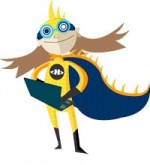 |
Hackasaurus |
||
| Presented by: Jess Klein & Atul Varma | |||
| Hackasaurus is a set of tools that are under development to help teenagers closely review, remix and redesign the Web—actively engaging with the digital world around them. #hackasaurus | |||
Peer 2 Peer University |
|||
| Presented by: Philipp Schmidt | |||
| The Peer 2 Peer University is a grassroots open education project that organizes learning outside of institutional walls and gives learners recognition for their achievements. P2PU replaces the traditional top-down model. Anyone can get involved to organize or join a study group, and everyone learns together, using existing open content. #p2pu | |||
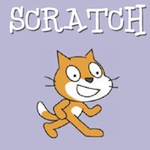 |
Scratch |
||
| Presented by: Karen Brennan, Aaron Morris, and Vanessa Gennarelli | |||
| Scratch is a programming environment that enables young people to create their own interactive digital media (such as stories, games, animations) and then share their creations online. #scratch 2010 DML Comp winner! |
|||
Creative Commons LRMI: Education. Now Findable. |
|||
| Presented by: Greg Grossmeier | |||
| Educational materials are everywhere online but how can you find that material which really addresses the learning need you, or your student, or your child, or your grandmother has? LRMI provides publishers (of all stripes) the ability to mark their content as both educational and give additional pointers of what educational need the content fulfills. | |||
Motion Math |
|||
| Presented by: Jacob Klein, Gabriel Adauto, Derek Lyons, and John Jessen | |||
| Motion Math Motion Math makes fun learning games that let kids play with numbers. Touchscreen interfaces and mobile device sensors allow for range of new interactions that we can leverage for learning. Motion Math has made three popular iPad games that connect the physical to the symbolic, teaching math in innovative ways never before possible: 1) the first learning game to use the accelerometer (also the first iPad educational app studied in a rigorous efficacy study), 2) the most interactive number line of all time, which employs the pinch gesture for zooming between different orders of magnitude, 3) an addition game with instant touchscreen addition. Come play the future of math! | |||
 |
National Writing Project |
||
| Presented by: NWP Team | |||
| National Writing Project: Digital is how we share, collaborate, publish, and participate today. What does that mean for the teaching and the learning of writing? Come explore these questions with us! | |||
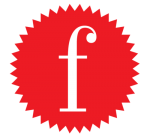 |
Figment |
||
| Presented by: Katie Robbins | |||
| Figment is a free online community for teens and young adults to create, discover, and share new reading and writing--from sonnets to screenplays to personal essays. In addition to giving emerging writers a place to publish and share their work, Figment also offers them the chance to interact with professional writers through author-judged writing contests, Q-and-A’s, and other original programming. Through our private Figment Groups, educators can create free virtual writers’ workshops,students can create and revise writings in the safe space of a closed group, sharing their works-in-progress, as well as commenting and reviewing, only with other members and their teacher, before publishing to the entire authentic audience of the Figment community. | |||
Newsmotion |
|||
| Presented by: Marisa Jahn | |||
| Newsmotion is an innovative platform for civic media, public art, and original documentary reportage. We are harnessing the power of independent voices, technology, and collaborative storytelling to help the critical issues of our time engage new audiences and find new solutions. Formed in partnership with People's Production House, the international training and production institute, working with low-wage workers, immigrants and youth. | |||
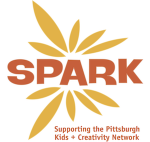 |
Spark |
||
| Presented by: Dustin Stiver | |||
| Spark is a network of innovators and organizations empowering children and youth by creating relevant learning opportunities through the compelling use of technology, media, and the arts. In the Pittsburgh region, educators, game designers, roboticists, artists, and child development experts have been working since 2007 to catalyze relevant, imaginative, and open learning opportunities that create remarkable experiences for children, youth, and families. | |||
 |
Gray Area Foundation for the Arts (GAFFTA) |
||
| Presented by: Josette Melchor, Cullen Miller and Lauren Sinreich | |||
| Our Creative Technology Studies program offers a series of specialized courses covering topics pertaining to creative coding and physical computing. Our renown faculty are dedicated to sharing the skills necessary for hacking, coding, and soldering your dreams together. Our students range from novices to professionally active artists and designers, and everyone in between. CTS provides participants with hands-on exposure to a wide array of projects that foster creative exploration and technical skills for prototyping and development. | |||
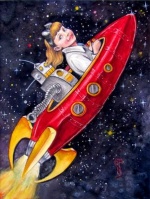 |
Super Awesome Sylvia |
||
| Presented by: James & Sylvia | |||
| Arduinos, rockets, Mod Podge and more, Sylvia shows you super awesome projects you can do at home!. Sylvia's DIY webshow on everything cool and worth Making. | |||
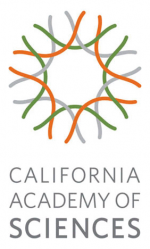 |
California Academy of Sciences |
||
| Presented by: Puja Dasari and Elizabeth Babcock | |||
| Home to Steinhart Aquarium, Kimball Natural History Museum, Morrison Planetarium, and world-class research and education programs, the California Academy of Sciences is one of San Francisco's must-see destinations. From the splashing penguins in African Hall to the wildflowers on the roof, the building is bursting with life. A four-story living rainforest and awe-inspiring coral reef ecosystem will delight visitors of all ages, while immersive space shows will transport audiences beyond the boundaries of our planet. Opportunities abound to meet Academy scientists, share in their discoveries, and join the journey to make our world a greener, more sustainable place to live. | |||
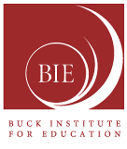 |
The Buck Institute of Education |
||
| Presented by: John Larmer and Albert Solis | |||
| Buck Institute of Education presents: In Project Based Learning (PBL), students go through an extended process of inquiry in response to a complex question, problem, or challenge. Rigorous projects help students learn key academic content and practice 21st Century Skills (such as collaboration, communication & critical thinking). | |||
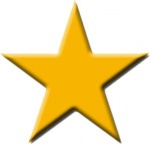 |
Noisebridge |
||
| Presented by: TBD | |||
| Noisebridge is an infrastructure provider for technical-creative projects, collaboratively run by its members. We are incorporated as a non-profit educational corporation for public benefit. We operate primarily in a 5,600 square-foot space located in the heart of San Francisco. | |||
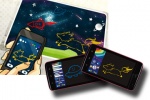 |
Parapara Animation |
||
| Presented by: Daisuke Akatsuka and Tetsuya Kosaka | |||
| Parapara Animation is a workshop to produce animation by drawing pictures on mobile device such as smart phone or tablet, working with other participants. The objective is not only to know how animation is produced but also to experience the openness by creating & sharing on the web. | |||
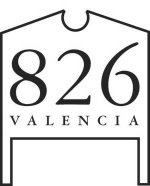 |
826 Valencia |
||
| Presented by: Yalie Kamara | |||
| 826 Valencia is a nonprofit organization dedicated to supporting students ages six to eighteen with their writing skills, and to helping teachers inspire their students to write. Our work is based on the understanding that strong writing skills are fundamental to future success and that great leaps in learning can happen when trained tutors work one-on-one with students. | |||
